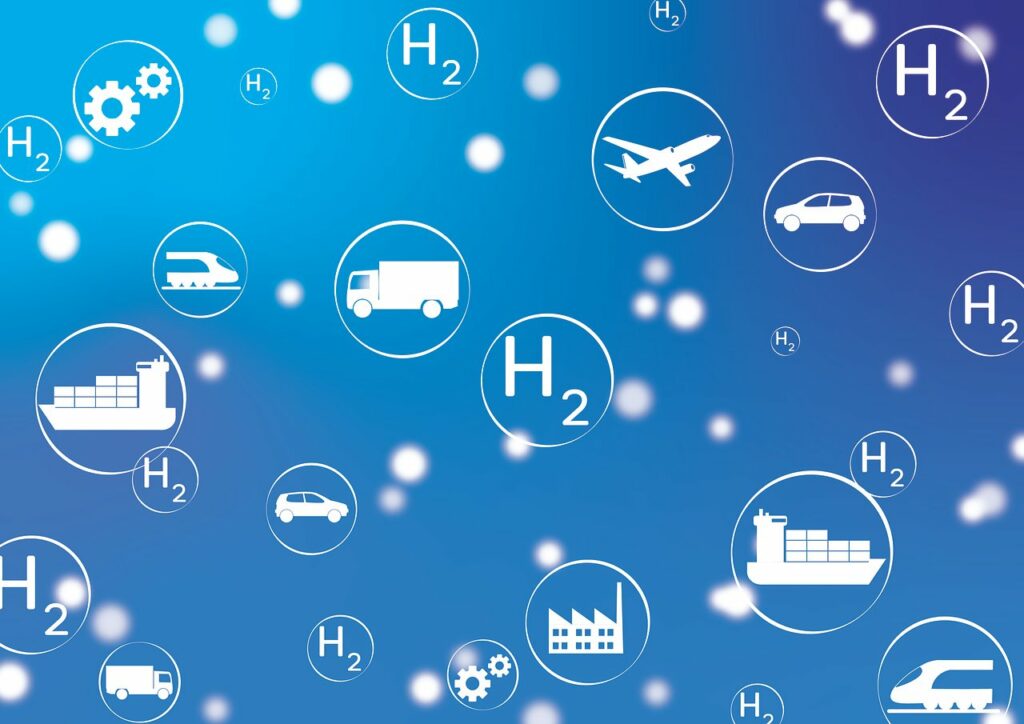As the world eagerly embraces the potential of hydrogen as a clean energy source, the efficient transport of this versatile gas becomes a critical consideration. A recent study published by the Organization of Arab Petroleum Exporting Countries (OAPEC) dives into the energy requirements for transporting hydrogen through various methods and uncovers some compelling insights.
Engineer Wael Hamed Abdel Moati, in the OAPEC study titled “Hydrogen Transport and Export,” emphasizes the energy consumption in hydrogen transport as a key parameter. He reveals that transporting 1 kilogram of hydrogen through pipelines incurs an energy cost of approximately 10 megajoules, which is equivalent to around 7% of the hydrogen’s energy content. This method stands out as the most energy-efficient option compared to others.
In contrast, when hydrogen is transported as ammonia, the energy consumption surges to about 31% of the hydrogen’s energy content. For liquid organic materials like methylcyclohexane, the energy requirement is even higher, amounting to roughly 37.6% of the hydrogen’s energy.
The most energy-intensive transport method is liquefied hydrogen, which can devour as much as 49.3% of the energy contained in the transported hydrogen. This is a significant revelation, highlighting the importance of optimizing transport methods to reduce these energy losses.
What this means is that the choice of how hydrogen is transported has a direct impact on the energy efficiency of the process. The number of operations involved in the transport path influences the energy wasted. Transporting hydrogen through pipelines minimizes the number of operations as there are reconversion steps upon arrival in the target market.
However, other transport methods can involve multiple conversion operations, requiring energy and potentially resulting in loss during storage and handling. For example, with liquefied hydrogen, the conversion process includes liquefaction at the export facility and re-conversion into gaseous hydrogen at the receiving port. Similar conversion steps apply to ammonia and liquid organic materials, adding to the energy and efficiency considerations.
The energy study underscores the importance of volumetric storage density when comparing hydrogen transport methods. Volumetric storage density measures the amount of energy contained in hydrogen per unit volume and varies with changes in pressure and temperature conditions. Higher pressure enhances energy density.
Methylcyclohexane has the lowest bulk storage density, while compressed hydrogen boasts a slightly higher density. The real standout is ammonia, with the highest volumetric storage density, making it a promising candidate for transporting hydrogen efficiently.
Boiling point, another critical factor, influences evaporation losses during storage and transport. Higher boiling points reduce evaporation losses. Methylcyclohexane, with its high boiling point, experiences minimal losses. In contrast, liquefied hydrogen and ammonia are more prone to evaporation losses.
This energy study doesn’t stop at volumetric density and boiling points. It also considers the energy used in conversion and reconversion processes, as well as loading and unloading at ports. The total energy expended for each kilogram of hydrogen can be taken into account to facilitate comparison.
With this perspective, transporting hydrogen as compressed gas through pipelines requires around 10 megajoules per kilogram of hydrogen, making it the most energy-efficient option. Liquefied hydrogen transport ranges from 17.26 to 59.16 megajoules per kilogram, indicating higher energy costs due to the liquefaction process, loading onto tankers, evaporation losses, and re-conversion.
Transporting hydrogen in the form of ammonia falls in between, with an estimated total energy consumption of about 37.4 megajoules per kilogram of hydrogen. For methylcyclohexane, it’s a bit higher at approximately 45.17 megajoules per kilogram.
This comprehensive study provides valuable insights into the energy efficiency of different hydrogen transport methods, ultimately highlighting the importance of making well-informed choices to ensure hydrogen reaches its destination with minimal energy waste. As the world looks to hydrogen to power a greener future, optimizing its transport will be vital in achieving environmental sustainability goals.





